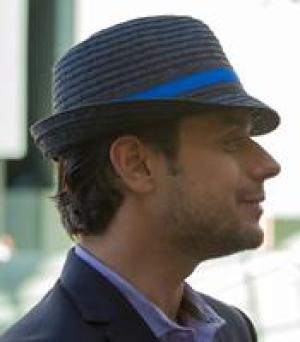Bill NaderHe was speaking on a panel at the University of Arizona's Racetrack Industry program. The panel was entitled,
"Racing's Identity Crisis: Who and What Are We?" This is a question often pondered by ThoroFan as it seeks to reach and support the fan base of Thoroughbred racing. Although ThoroFan has a mixed membership base, many of our members and Newsletter readers are new to the sport. Going to their favorite track is fun and exciting, but the experience can be intimidating and confusing to the new fan. The place, remember, we all were at once.
After purchasing a program with some past performance information in it, we are loath to know what to do next. How to decipher the information in a program is the first task. Of course all the "wise guys" want to look like they know what they are doing and not always interested in helping a new fan. The track televisions are replete with "experts" offering their early Pick 5 tickets. A what? Handicappers talking about ROI. Really?
Although some tracks are better than others, it is rare to find a well-produced new fan education program to "kick-start" the day at the track. Most on-track education programs are geared to showing the novice how to bet with little orientation to the sport. Most are produced by track marketing departments that have a goal of filling seats and driving up the track handle for the day.
Almost made the same mistake. In racing, the "handle' refers to the amount of money bet on the race card in the day. This is an important metric since race tracks pay for their operations through a percentage of the handle known in the business as "take-out". Tracks keep about 20% of the handle bet and return 80% to the winners. So now you know.
The Arizona symposium started with the question, "is racing in crisis" and to delve into the question of "who are the customers of the sport"? Because tracks depend on handle to survive, they often default out of necessity to the needs of the experience player or large bettor. Understood, but shortsighted. What is missed is this gambling-centric approach is the long game plan. New fans are overlooked in this approach. Also lost are, how most new fans love the horse, horseracing and a day of entertainment at the track. Reaching these diverse groups is hard and then focus of the panel discussion.
Peter RotondoPeter Rotondo, VP of Media and entertainment for the Breeders' Cup understands this dilemma very well. He said in article in the
Daily Racing Form by Matt Hegarty, "You have to have it all". This especially true for the big days like the Breeders'Cup. But the average racetrack financially has a difficult time diversifying its messages to all levels of fans. Unfortunately, they are going to have to learn if they hope to survive and our sport along with it.
Horse racing has to be about entertainment not just gambling. Cost to attend and take-out is a heavy lift when trying to compete with casinos for gaming dollars. The sport has to adapt.
Casinos welcome players of all levels offering a range of gaming activities to suit an individual's need. And when the right game is played correctly the percentage that casinos takeout on each bet dwarfs the handle in racing by as much as 10 fold.
I am reminded of a fictional story where two friends head out on a Saturday morning for a day of fun. One goes to play golf, while the other goes to the racetrack. After a day out planning to spend the same amount of money, they return home to interesting inquiries. The golfer is asked did he have fun. The horseplayer is asked did he win. Can't the horseplayer have fun even if he loses every race? You betcha.
The Arizona Symposium must be complimented for starting their program off with the seminal question. Answering will be more difficult. And even more difficult will be for tracks to adjust their paradigm to implement the answer.



